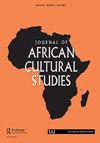“Fake” Journals and the Fragility of Authenticity: Citation Indexes, “Predatory” Publishing, and the African Research Ecosystem
IF 0.9
2区 社会学
Q2 CULTURAL STUDIES
引用次数: 7
Abstract
ABSTRACT This article explores the contested politics of academic authenticity within the African research ecosystem, with particular reference to Nigeria. We show how a fear of “fake” journals is cultivated amongst African academics, with international journal citation indexes being used to adjudicate the credibility of African journals and publishers. The article juxtaposes an ethnographic vignette of a major publisher’s training webinar with detailed case studies of two Nigerian commercial publishing houses. Established by entrepreneurial academics in response to limited local journal capacity and the exclusions enacted by Northern editorial gatekeeping, their journals have low article processing charges and, in some cases, minimal peer-review. One publisher was labelled as “predatory” in Beall’s list, leading to its journals being removed from Scopus, the Elsevier-owned journal citation index. The other has struggled to get its journals listed in alternative journal databases, such as the Directory of Open Access Journals. The article explores how these citation indexes become contested markers of academic authenticity. We end by reflecting on the implications of this index-linked credibility for the future of African journals and the circulation of research knowledge across the continent.“虚假”期刊与真实性的脆弱性:引文索引、“掠夺性”出版和非洲研究生态系统
摘要本文探讨了非洲研究生态系统中学术真实性的争议政治,特别是尼日利亚。我们展示了非洲学者对“假”期刊的恐惧是如何培养的,国际期刊引用指数被用来评判非洲期刊和出版商的可信度。这篇文章将一家主要出版商培训网络研讨会的民族志小插曲与尼日利亚两家商业出版社的详细案例研究并置。创业学者为应对当地期刊容量有限和北方编辑把关规定的排斥而创办的期刊,其文章处理费用较低,在某些情况下,同行评审也很少。Beall的名单中有一家出版商被贴上了“掠夺性”的标签,导致其期刊从爱思唯尔旗下的期刊引文索引Scopus中删除。另一家一直在努力将其期刊列入其他期刊数据库,如开放获取期刊目录。本文探讨了这些引文索引如何成为学术真实性的有争议的标志。最后,我们反思了这一与指数挂钩的可信度对非洲期刊的未来和研究知识在整个非洲大陆的传播的影响。
本文章由计算机程序翻译,如有差异,请以英文原文为准。
求助全文
约1分钟内获得全文
求助全文
来源期刊

Journal of African Cultural Studies
Multiple-
CiteScore
1.70
自引率
10.00%
发文量
13
期刊介绍:
The Journal of African Cultural Studies publishes leading scholarship on African culture from inside and outside Africa, with a special commitment to Africa-based authors and to African languages. Our editorial policy encourages an interdisciplinary approach, involving humanities, including environmental humanities. The journal focuses on dimensions of African culture, performance arts, visual arts, music, cinema, the role of the media, the relationship between culture and power, as well as issues within such fields as popular culture in Africa, sociolinguistic topics of cultural interest, and culture and gender. We welcome in particular articles that show evidence of understanding life on the ground, and that demonstrate local knowledge and linguistic competence. We do not publish articles that offer mostly textual analyses of cultural products like novels and films, nor articles that are mostly historical or those based primarily on secondary (such as digital and library) sources. The journal has evolved from the journal African Languages and Cultures, founded in 1988 in the Department of the Languages and Cultures of Africa at the School of Oriental and African Studies, London. From 2019, it is published in association with the International African Institute, London. Journal of African Cultural Studies publishes original research articles. The journal also publishes an occasional Contemporary Conversations section, in which authors respond to current issues. The section has included reviews, interviews and invited response or position papers. We welcome proposals for future Contemporary Conversations themes.
 求助内容:
求助内容: 应助结果提醒方式:
应助结果提醒方式:


